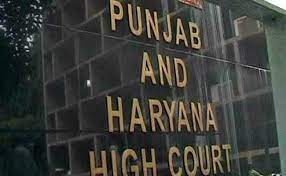CHANDIGARH: Logging on to technology to overcome physical hurdles in legal proceedings, the Punjab and Haryana High Court has mandated the use of videoconferencing as a crucial tool for recording evidence when the presence of a witness cannot be secured in person.
The Bench made it clear that depriving an opportunity to depose through videoconferencing to a person, stuck in Canada due to a diplomatic standoff between the two countries, would violate his right to a free and fair trial under Article 21.
The ruling by Justice Harpreet Singh Brar came on a petition for quashing an order dated August 25, vide which his application for getting a statement recorded through videoconferencing was “illegally and erroneously dismissed” in a criminal breach of trust case.
The Bench was told that the petitioner, a permanent resident of Canada, was complainant in the case. His evidence initially could not be recorded through the coordinators at the Indian and Canadian embassy due to frayed diplomatic relations between the countries at the time.
The Bench observed: “The recourse to record evidence through videoconferencing is all the more necessary when the attendance of a witness cannot be procured physically and any delay would affect the progress of the trial, which would cause great hardship and inconvenience to the witness by travelling a long distance to depose.”
The Bench also observed the petitioner’s evidence, being the complainant, was necessary for the pursuit of justice. The fair trial mechanism, enshrined under Article 21, was not only available to the accused, but existed for the complainant-victim as well.
The Bench said detailed directions had been issued by the Supreme Court, and model videoconferencing rules had been framed by it. Similar rules had also been framed by the high court. As such, the examination of the witnesses through videoconferencing was required to be encouraged. It would expedite the trial and reduce unnecessary footfall in the court premises.
It would also be in the interest of justice, besides being more time and cost efficient for the individual litigants and the courts. Unnecessary inconvenience and hardship to the witnesses was required to be avoided. Recording of evidence through videoconferencing would also be more convenient and less traumatic for children, women and victims of abuse, besides differently abled persons unable to conveniently attend physical hearings.
“Keeping in view the strained diplomatic relations between India and Canada owing to which the petitioner would not be in a position to procure visa and travel to India and the fact that closing of the evidence by order would cause grave prejudice to the petitioner being the complainant and render undue advantage to the accused, the impugned orders are set aside,” the Bench asserted.


